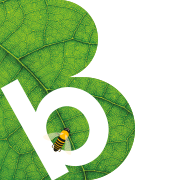Michelle Kennedy, founder of mums meeting app Peanut, discusses the side effect of Motherhood that no one is talking about
Remember those mugs that people used to have in the office in early 2000? ‘You don’t have to be mad to work here, but if you are, it helps,’ in a jaunty font. I always found them unnerving (not just because they were sold in low-grade gift shops) but because it always felt uncomfortable that we were laughing about something that I didn’t feel was that funny (my imagination would reach to cartoon images of lunatics in the asylum).
When I launched Peanut in 2017, my aim was clear. I wanted to connect like-minded women, who happened to be mothers. I felt frustrated by that upon reaching motherhood I didn’t have a slick tech product to represent this new chapter in my life (having been working in tech for five years) and on a more personal note, I need some support from some like-minded women.
I didn’t have friends who were mothers, and I felt isolated. I didn’t feel massively comfortable to admit this at the aged of 30 but it was true nonetheless. So Peanut was born, to create a social platform for women.
I wasn’t thinking about mental health, and I wasn’t thinking about those mugs, I was thinking about the importance of human connection and interaction with people who were like minded at a time when we so desperately need it.
So, when we recently launched a new feature on Peanut called Peanut Pages, a way for women to have conversations across the community, to facilitate the conversations women want and need to have, I was fascinated to see what the ‘hot topics’ were.
In amongst the more expected conversations surrounding work, money, love and sex, women want to talk about motherhood and anxiety, motherhood and isolation, motherhood and mental health. They wanted to talk about the topic of mental health.
Noticing chains of conversations on the topic, I asked a question of the members of Peanut myself: “Mental Health. Are we talking about it enough?” The responses were astonishing. Women described how they felt anxiety was the number one complication upon becoming a new mother.
They also felt that, during pregnancy, conversations should be directed towards post partum depression, what it is, what the symptoms and signs are and what you can do about it.
Women described the embarrassment and stigma they felt were associated with talking about mental health and motherhood and in particular, how we needed to scrap the phrase “baby blues” because this was something more than that. What was clear, was that I wasn’t the only one who always felt unnerved by the way in which we’d previously spoken about mental health. What was clear was that there is a desire to change the conversation, move it forward, destigmatise it (in whatever form it’s presenting).
In amongst this conversation, what I was most encouraged by were the hundreds of messages of support from our members. Championing, offering advice, offering (perhaps most importantly), solidarity. Because we’ve all had moments of anxiety or panic in our journey into motherhood, some longer lasting and more severe than others, and we can all understand how scary those moments must be.
So, you don’t have to be mad to be a mother, but… if you’re feeling a little closer to madness than you’d like, there is something you can do to help yourself. Talk to like minded women who will support you through it.
Organisations that can help:
www.mind.org.uk
